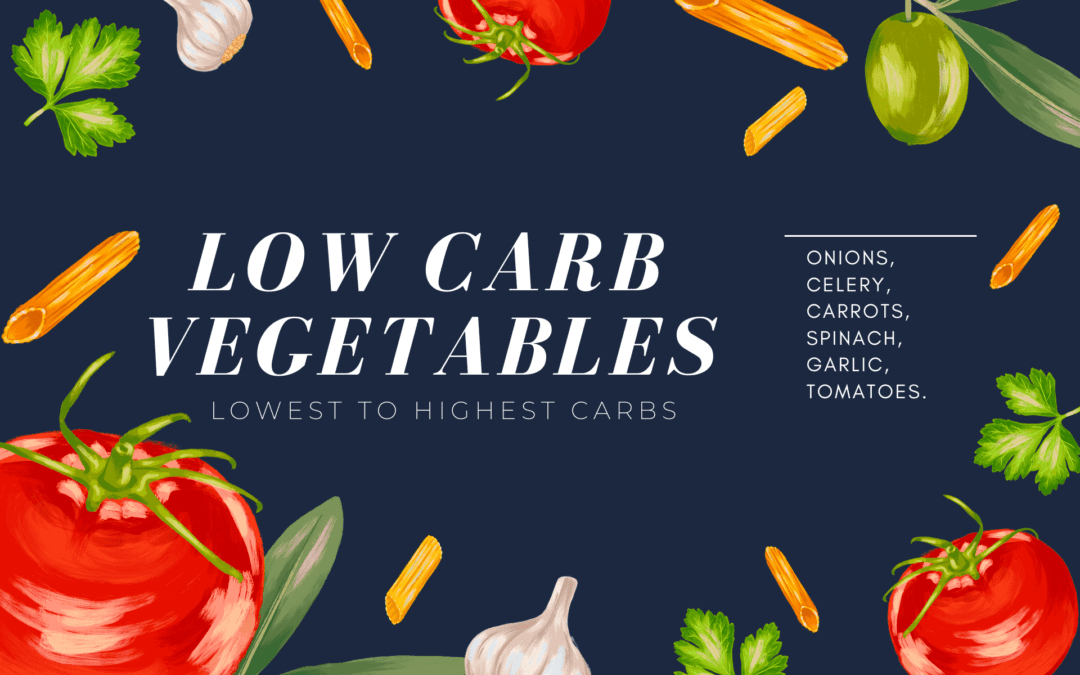Oh, the carbohydrate vs. fat war! This has long been a contentious issue in our society, inspiring many a new diet book based on the notion that fat or carbohydrates cause more weight gain or loss than the other.
This is especially important for people with diabetes since more carbs are sometimes required to correct low blood glucose or match insulin dosages, prompting concerns about undesirable weight gain or other effects.
Low carb vs. low fat?
The “diet-heart hypothesis” was developed in the 1970s, and North Americans were advised to follow an extremely low-fat diet to control cholesterol. We now know that not all cholesterol is harmful, that saturated fat may not be as significant for heart disease as previously assumed, and that low-fat foods are not always the better option.
This “macronutrient war” prompted studies to explore if a low carb diet has a “metabolic advantage” over a low-fat diet.
What were the outcomes? People on low carb diets lost more weight in the near term, but numerous studies that followed patients for a more extended period found that the effects began to fade around the 24-month point as people started to ingest more carbohydrates. Other health indicators, such as cholesterol, did not alter substantially across groups.
Meanwhile, a 2017 assessment of 32 different controlled diet trials showed that when calories and protein are regulated, there is no benefit to energy expenditure or weight reduction by consuming a low carb diet.
Finally, weight management boils down to calorie restriction.
While calories from different meals deliver different micronutrients and have varied effects on your body’s biological processes, claiming that one Source of calories promotes more weight gain than another is a fundamental misunderstanding of thermodynamic rules.
Carbohydrates have four calories per gram, whereas fats have nine calories per gram. The fact that fat is more calorically dense does not imply that it is more likely to promote weight gain. Context is everything in nutrition.
The issue about diets and losing weight is that it’s all about numbers. Weight gain is likely if you consume more calories than your body requires or burns daily. And if you consume fewer calories than your body needs over time, the opposite effect is likely. This cannot be easy to calculate because it’s simpler to count the calories you consume than the energy you spend (because everyone’s reaction to physical exercise differs).
Hayden James, a registered dietitian and diabetes care and education specialist (DCES) of Intermountain Healthcare in Utah, nicely summarizes the situation. “Neither carbs nor fats alone cause weight gain,” she claims. It all boils down to calories. Finding a mix between the two that works for your preferences and helps you achieve your goals is critical.”
Does insulin cause weight gain?
PWDs are frequently concerned about insulin use leading to weight gain, and the more carbohydrates consumed, the more insulin is required. This is the basic assumption of the disproven “carbohydrate-insulin hypothesis of obesity.” Neither carbohydrates nor insulin is primarily to blame for weight gain. In reality, they both play an essential role in the regular functioning of the human body.
“The classic example — and honestly the easiest to understand — of how insulin works is a lock and key,” says Mary Ellen Phipps, registered dietitian and author of The Easy Diabetes Cookbook. Glucose molecules will circulate in your bloodstream after consuming carbohydrates, or your liver creates glucose. The cells in your body require glucose, yet glucose cannot just stroll into cells. They’re shut. They need a key. As a result, your pancreas generates insulin, which is released into your bloodstream and works as a key on cells to allow glucose to enter. Diabetes occurs when there is an insulin deficit, inefficient insulin, or both.”
True, if your body has excess glucose that cannot be metabolized or stored as muscle or liver glycogen, it will be stored as fat. However, the body’s fat reserves are constantly changing. While some carbs may be stored as fat at one point in the day, that fat may need to be mobilized for energy when other fuel sources are unavailable.
Things to know about weight loss
We need to look at the science of weight loss for those who wish to lose weight. According to “set point theory,” your body has a specific weight baseline built into your DNA, and how much your weight moves from that set point may be limited.
According to the notion, some people have higher weight set points than others, and our bodies work hard to keep within these ranges.
However, there is evidence that persistent dieting, weight cycling, and other methods can raise the weight set point. This adds to the large percentage of people who regain weight after dieting. According to a 2018 study review, “diet interventions” often result in early fast weight loss, a weight plateau, and gradual recovery.
This demonstrates why making weight loss a permanent aim is typically unsustainable. It’s also crucial to note that losing weight isn’t always the answer to “solving” health problems that can be improved with other behavioral and lifestyle adjustments.
This is exacerbated further by weight not being the same as body composition, which is the percentage of muscle, fat tissue, bone/mineral/water in the body. This is one of the primary reasons why using BMI (Body Mass Index) to assess someone’s “health” is incorrect. BMI is a formula that relates weight to height and cannot distinguish between body composition, which is more directly related to general health than weight alone.
In other words, bodies come in many forms and sizes, and weight alone cannot be used to judge someone’s health. Waist circumference is more beneficial than BMI in assessing a person’s risk for illness. However, neither metric takes the whole individual into account.
Health at Every Size (HAES) is a program that emphasizes actions that support overall health rather than simply weight loss. Dr. Gregory Dodell of New York’s Central Park Endocrinology is a self-proclaimed HAES nondiet endocrinologist.
He proposes a “weight inclusive approach” that emphasizes health-promoting activities such as stress management, activity, intuitive eating, and enough sleep regardless of weight. In the context of an altered lifestyle that results in improved glycemic control, people may lose, gain, or retain the same weight.
Glucose control benefits
The carbs/fat/insulin debate for PWDs is about more than body weight and the influence on blood glucose (BG) regulation.
There is evidence that substituting carbs with more unsaturated fat (as in the Mediterranean diet) improves insulin sensitivity, which means you require less insulin to achieve target blood sugar management.
Additional strategies to enhance BG control and lipids without losing weight include obtaining more exercise and sleep (which many individuals require), increasing fiber consumption, limiting simple carbohydrates, and so on.
Many doctors and diabetes educators at big diabetes centers are considered to advocate high-carbohydrate diets that make BG management harder.
However, this is no longer the case.
For example, Dr. Dodell of New York advises his patients to “combine fats, proteins, and fiber to carbs to help prevent blood sugar spikes rather than restricting or eliminating carbohydrates.” Adding nutrients rather than eliminating them may be more sustainable, as data shows that restrictive diets are not long-term maintainable.”
The American Diabetes Association (ADA), which has long been chastised for failing to recognize the benefits of low carb meals for glucose management, now believes that nutrition should be tailored for PWDs and that there is no optimal carbohydrate, protein, or fat in the diet.
The American Diabetes Association (ADA) now “recommends that individuals meet with a doctor or dietitian to explore which (eating) approach is best for them — which is important, because there isn’t a one-size-fits-all approach to diabetes management,” according to Amanda Ciprich, a registered dietitian in New Jersey who lives with type 1 diabetes (T1D).
Dietitian Phipps, for example, is glad that the ADA has adopted this method. “While recommendations from professional organizations are catching up, historically they don’t keep up with the science as quickly as we’d like,” she said.
Pressure to go low carb
The “Bernstein Method,” a low carb diet requiring just around 20 grams of carbohydrates daily, has sparked a significant movement. While this diet may produce “on target” glycemic management, Phipps notes that “while this may be an effective approach for some, it is not the only way to eat if you have diabetes.”
Julie Stefanski, registered dietitian, DCES, and Academy of Nutrition and Dietetics spokesman, agrees. She explains that “as valid research continues to emerge supporting the use of ketogenic diet therapies, it’s important for dietitians to be knowledgeable regarding diet guidelines and pitfalls for those individuals wanting to replicate the success of this research in their own lives.”
While low carb diets can be used to regulate blood sugar, they frequently produce deprivation, which leads to overeating or bingeing. PWDs are not immune to this psychological phenomenon.
It’s impossible for most people to never eat a cookie, a slice of bread, or a birthday cake. Some people can maintain this eating pattern for extended periods. Others, on the other hand, may begin to experience a loss in mental and physical health, resulting in accidental weight gain via the “binge-restrict” cycle.
Diabetes and disordered eating
PWDs have a relatively high prevalence of disordered eating and eating disorders. In contrast to an obsessive eating disorder, the National Eating Disorders Association describes “disordered eating” as eating out of boredom, anxiety, or social constraints.
Eating disorders and diabetes co-occur so frequently that the phenomenon has been dubbed “diabulimia” by the media. This is sometimes the outcome of well-intended but severe dietary advice to assist in regulating blood sugar (BG), particularly in type 1 diabetes (T1D).
We must examine the cost of pursuing “perfect blood glucose control.” A study overview for 2019. According to research, women with T1D are 2.5 times more likely than non-diabetics to develop an eating issue.
This topic was explored in a previous piece regarding how low carb diets can occasionally backfire for persons with T1D.
People can follow any dietary pattern they like, but in my opinion, if the diet causes anxiety, bingeing, dread of eating out or socializing, and so on, it may not be the best diet. Stress and anxiety affect glycemic management. Therefore, this is something to consider when assessing overall health and wellness. Always consult a healthcare practitioner about your dietary needs or any dietary adjustments you make.
While diabetes (and food allergies, for example) are chronic diseases, eating is also social, emotional, and cultural. Unlike a food allergy, which requires complete abstinence, insulin allows diabetics to consume carbs in moderation, which should not be interpreted negatively or negatively.
The Bottom line
Carbohydrates or fat are not better for weight reduction since several other elements influence one’s body weight and general health.
Focusing on sufficient nutrition, sleep, stress management, and a good connection with food and your body will benefit an individual more than simply focusing on weight loss.
Weight reduction, weight growth, or weight maintenance may occur from focusing on self-care, healthy eating, and body practices. On the other hand, positive changes in everyday well-being and glycemic management can be an even more significant success than losing weight.







0 Comments